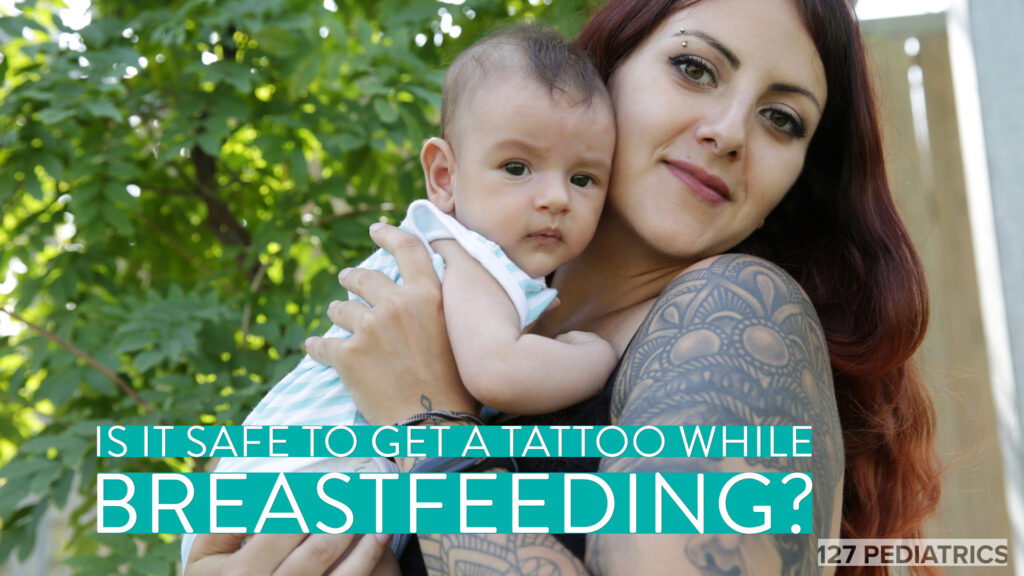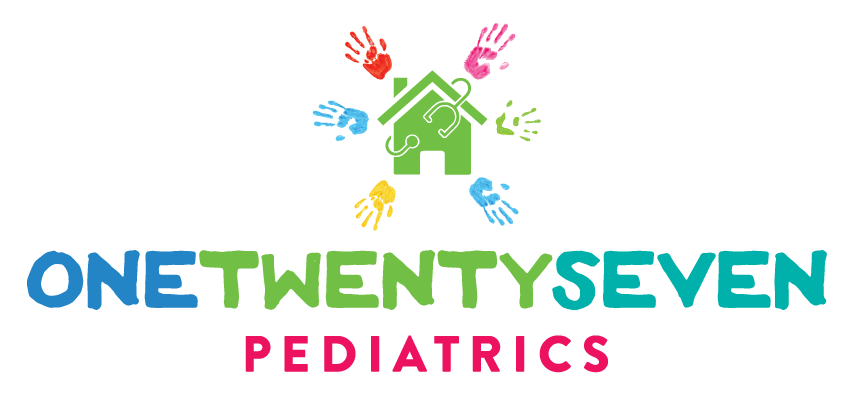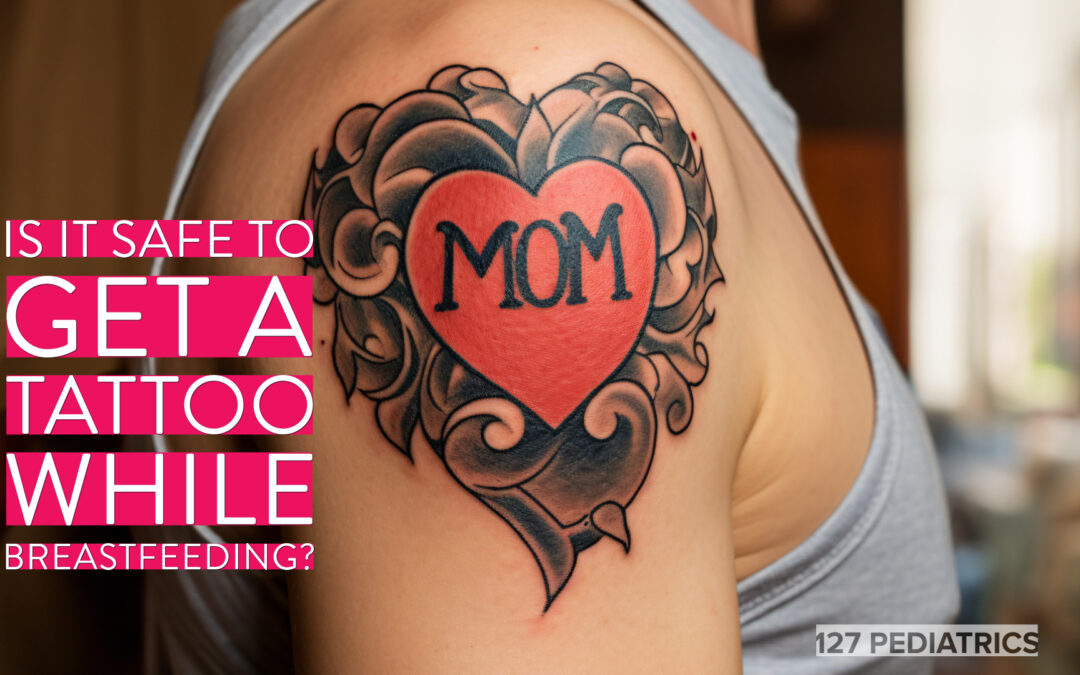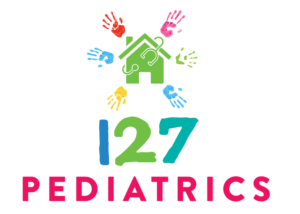While there are a lot of unknowns when it comes to whether or not it is safe to get a tattoo while breastfeeding, many experts and healthcare professionals advise against it. While I am not an expert in tattoos, I am a breastfeeding expert. As a professional, my advice is to weigh the pros and cons of every decision that you make in life. While I can provide you with the medical and scientific facts around getting a tattoo while breastfeeding, the decision is ultimately in on your hands.
In this article, we will look at things that you need to take into account when you are considering getting a tattoo while breastfeeding.
What is a Tattoo?
Before we can discuss the potential risks of getting a tattoo while breastfeeding, it is important to establish a common understanding of certain terms.
A tattoo is a form of body art that consists of injecting ink into the skin, creating a permanent design or pattern. They have been used for self-expression and cultural purposes throughout history.
Getting a tattoo requires a tattoo machine. The necessary supplies include a power supply, a hollow tattoo needle, and tubes to deliver the ink into the skin. The tattoo artist punctures the skin with the needle and deposits ink into the dermis. The machine’s needles move up and down to deliver the ink, creating the desired design.
Different Types of Tattoos
Permanent tattoos are not the only type of tattoo. Temporary tattoos, like henna tattoos, are another option. Henna tattoos use dye derived from the henna plant and are applied to the skin. These tattoos create a temporary design that eventually fades away when the skin sheds its top layer.
Both permanent and temporary tattoos are a common form of artistic expression and self-identity, holding personal significance or serving as a visual depiction of someone’s style, personality, and culture.
When considering getting a tattoo, it is important to carefully think about the design, placement, and potential risks involved.

Safety of Tattoos and Breastfeeding
Many moms worry about the safety of getting tattoos while breastfeeding. There are potential risks, but you can reduce them by taking safety precautions. It may also be challenging to find a tattoo artist willing to tattoo a pregnant or breastfeeding mother due to liability concerns.
Choosing a reputable tattoo artist is extremely important. Reputable shops should follow strict hygiene practices. Tattoo parlors are regulated for cleanliness and safety. Selecting a reputable artist reduces the risk of infection or complications.
During the tattooing process, there is a slight chance that ink molecules may enter the bloodstream. The quantity of ink that enters the body is usually minimal. Nevertheless, it is important to take into account the potential effects on both the breastfeeding parent and the baby.
Furthermore, certain tattoo inks may contain heavy metals or other substances that may pose a potential risk to a breastfeeding infant.
Decrease Your Risk
For optimal safety, it is advisable to wait for several months after giving birth before getting a tattoo. Waiting allows your body ample time to recover from childbirth and establish a reliable milk supply. Additionally, waiting a few months after delivery improves your body’s ability to heal and care for the tattoo. Proper after care is important in order to decrease your risk of skin infections or other complications.
Moreover, once a baby reaches 9 months after birth, they become less reliant on breast milk as their only source of nutrition. This decreases any potential risks to the breastfeeding baby that may be associated with the tattoo procedure.
Before making any decisions, consult your healthcare professional or lactation consultant. It is important to disclose your breastfeeding relationship to your tattoo professional. Meet with your tattoo artist ahead of time to ensure everyone is comfortable proceeding.
Tattoo ink and breast milk
The size of tattoo ink particles prevents them from entering breast milk, making it unlikely for them to pass to the baby. Furthermore, the particles remain trapped under the second layer of skin and do not significantly enter the bloodstream.
However, we don’t currently have a grasp on how ink particles break down in the body. It is also unknown whether or not they enter a mother’s bloodstream and therefore her breast milk.
Although the chances of ink particles transferring into breast milk are low, it is important to comprehend the potential mechanisms by which this may occur.
During the tattooing process, ink particles are injected into the deeper layers of the skin using a tattoo needle. Some of these particles may enter the bloodstream, although the body’s natural healing response typically forms a barrier around the tattooed area.
Heavy metals in tattoo ink
As we have discussed, ink particles from tattoos can potentially enter breast milk. These particles possibly carry heavy metals into the bloodstream and milk supply. We do know that the FDA does not regulate tattoo ink, and therefore it is a large unknown. Scientific studies have not definitively proven or disproved whether heavy metal transfer occurs or not, so caution is advised.
In theory, if heavy metals are in the breast milk, they can potentially harm the baby’s health.
Exposure to lead, for instance, has been associated with developmental delays and cognitive impairments in children. Mercury is recognized as a cause of neurological damage, while arsenic and cadmium can negatively impact the kidneys, liver, and other organs.
This is enough of an unknown that some mothers choose to wait on a tattoo until they have weaned their baby.
Other Potential Risks of Tattoos while Breastfeeding
In addition to the potential transfer of harmful particles to the baby, other risks to consider when getting a tattoo during breastfeeding include allergic reactions, infections, and emotional consequences.
Allergic Reactions
Allergic reactions are possible when exposing the body to any new substance. Tattoo ink is no exception. It is particularly risky for individuals who have never had a tattoo before. Additionally, breastfeeding adds a theoretical risk as well. A woman’s immune system is altered during breastfeeding and could potentially lead her to have a more severe reaction.
Additionally, you could experience a range of reactions from local skin reactions to a more severe anaphylactic reaction. Either of these scenarios could interrupt your hard earned breastfeeding relationship with your child.
Infectious Risks
While you can mitigate your risks of skin infections by choosing a reputable tattoo parlor, the risk of infection still exists. Even if your tattoo artist takes proper precautions with sterile equipment, your opening yourself up to infection risks. Any break in the skin can lead to a risk for bacterial infection. The most severe consequences could be a blood infection that would land you in the hospital.
Finally, while infection does not pass to the baby through breast milk, you could potentially risk your breastfeeding relationship.
Emotional consequences
Have you ever thought that something sounded like a good idea and then you regretted going through with it? This is definitely one of the risks of getting a tattoo while you are breastfeeding. Pregnancy and postpartum is such a vulnerable time in a woman’s life. In my opinion, waiting on something that you would potentially regret is better saved for a different season of your life.
Additionally, the stress of regret can impact your milk supply and your ability to supply breast milk to your baby.
Pick A Tattoo Artist carefully
If after reading this article, you are still convinced that getting a tattoo while breastfeeding is something that you want to do, make sure you choose your artist wisely.
It is important to ensure the safety and hygiene of tattoo artists by selecting professionals who adhere to strict protocols. Prioritize thorough research, including reviewing portfolios, checking reviews, and inquiring about sterilization practices, before selecting a tattoo artist and parlor.
A professional tattoo artist will use sterile equipment, including single-use needles and tubes, and adhere to proper sanitation guidelines to minimize the risk of infections. Moreover, professional tattoo artists will provide thorough aftercare instructions to promote proper healing and reduce the chances of complications.
Ensure peace of mind by selecting a knowledgeable tattoo artist and reputable studio.
Health Department Oversight
Tattoo parlors and artists undergo regular inspections to comply with local regulations. The sanitation practices at these establishments are checked by the department of public health. This ensures that proper sterilization techniques are used, and disposable tools are utilized. These measures help minimize the risk of infection. The inspectors also ensure that tattoo artists adhere to safe tattooing processes, including the use of clean needles and ink.
The health department carries out investigations and addresses complaints to ensure the safety of the tattoo industry. They assess potential risks, such as the use of hazardous ink or equipment, and take necessary measures to safeguard the public.
How Can 127 Pediatrics Help You in Your Breastfeeding Journey?
At 127 Pediatrics, we like to consider both the needs of the mother as well as the baby when it comes to breastfeeding. We offer many free resources that can help you no matter where you are in your breastfeeding journey. If you would like to stay up to date on all of our offerings as well as keep a steady flow of evidence based breastfeeding information hitting your inbox each week, be sure to sign up for our newsletter. Click the link below and we will get you added to the list.

© 127 Pediatrics, April 2024
This article is for information purposes only. Please consult your personal physician for medical advice.

Dr. Andrea Wadley owns and operates 127 Pediatrics. She started the practice in 2018 as a way to provide a more personalized option for both pediatric and breastfeeding care in the DFW metroplex. As an extension of her practice, she also offers breastfeeding consults as well as online education.


